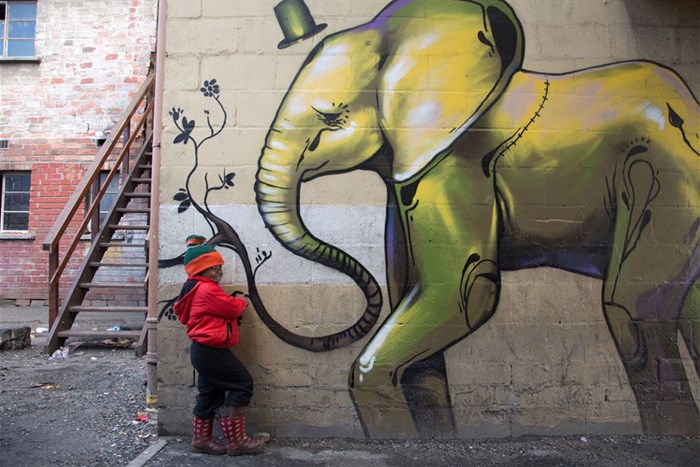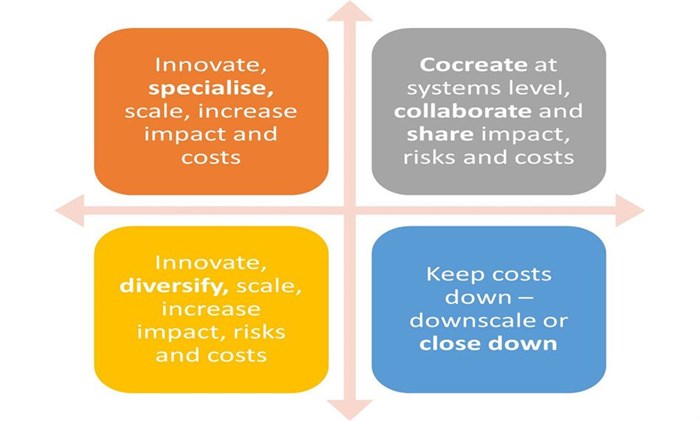
Related
Top stories


ESG & Sustainability#BudgetSpeech2026: SRD grant unchanged, other Sassa social grants see hike
13 hours



More news












ESG & Sustainability
South Africa’s carbon tax should stay: climate scientists explain why










Hardly a day goes by that we don’t read or hear about an existing or new crisis, catastrophe or calamity, critical challenges or being at a crossroads. All these c-words also have another side, the one of cocreation and collaboration. They all exist in a world in constant turmoil, a global polycrisis and a threatening permacrisis. We are experiencing multiple, intersecting crises – the climate crisis causes natural disasters, leading to disease outbreaks, food insecurity and conflict. This year nearly 300 million people will need humanitarian assistance.
The humanitarian sector has been in a precarious position for years, says Reana Rossouw, founder of management consultancy Next Generation. “There are too many uncoordinated efforts flowing from a lack of data, a multitude of small interventions without innovation, inaccurate budgeting and escalating costs, misappropriated resources as well as increased legislation on the one hand but a lack of governance and benchmarking on the other. Of course, there have been positive developments, such as outcomes-focused monitoring and evaluation, and a focus on diversity, equity and inclusion. But it’s not enough.”
To avert a snowball effect, a new development model that can address these challenges is urgently required. Rossouw says it has to contain specific elements:
Collaboration is crucial and critical
To successfully solve the complex challenges of a world in a polycrisis, the humanitarian lens should zoom in on collaborative and network philanthropy as well as transformative philanthropy, Rossouw says. “When we talk about collaboration, the focus should be on capacitating organisations to codevelop effective solutions to known problems with communities and stakeholders.”
In the context of the polycrisis, it is however critical to address the disastrous impact of complex and disruptive problems. “This can only be done through transformative philanthropy, investigating the systemic root causes of the challenges and role players across the humanitarian ecosystem cocreating solutions.”
Rossouw believes transformative systems will require significant change across the philanthropic ecosystem: from the outside in (sector changes), from the inside out (organisational changes) and from the bottom up (funding changes). So what is needed and what will this mean in practice?
Sector changes – from the outside in
Organisational changes – from the inside out
Funding changes – from the bottom up
With multiple crises, where should the focus be?
The global polycrisis is forcing us to follow a more diversified and strategic approach. “Many traditional focus areas such as arts and culture, sport and housing are being pushed from the priority list, other areas are becoming increasingly important,” Rossouw says. These are education, the environment, disaster relief and response, food security and entrepreneurship.
Concerning education, the focus is shifting to early childhood development and collaborative funding. “STEM literacy and numeracy are still important, but too limited to enable systemic change,” Rossouw says. Environmental programmes have changed from awareness and conservation to climate mitigation and adaptation. Linked to this, and driven by increased conflict, organisations have to reserve funding for disaster responses.
As food insecurity is worsening, the agricultural value chain is critical, Rossouw says. And then there’s youth unemployment – it is a priority to grow economies and move to more innovative social innovation and development practices, therefore funding for entrepreneurship is increasing.
Rossouw believes there are four broad directions role players in the humanitarian sector can pursue:

“Collaboration is the golden thread, and the key to a transformed humanitarian sector,” Rossouw says. “But change is complex and often messy. It requires large-scale, strategic collaboration.
The problems we’re facing are complex and interconnected, with no roadmap for success. “But we do know that what has brought us here will not take us forward,” she added. “We’ll need multiple plausible maps of change, with multiple trial and error rounds.”
#Polycrisis #Permacrisis #TransformativePhilanthropy #SocialDevelopmentModel #IntersectingEmergencies #ComplexSolutions #EcosystemChange